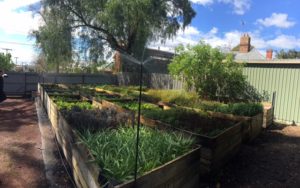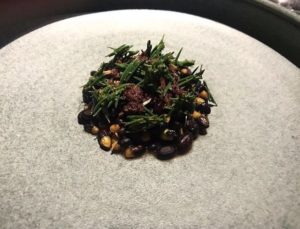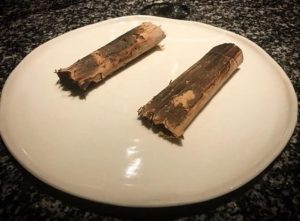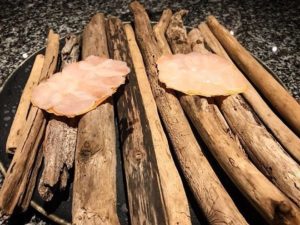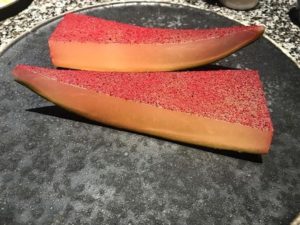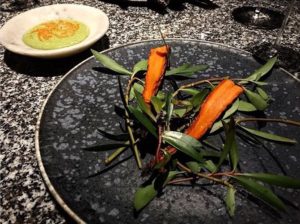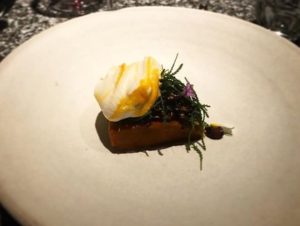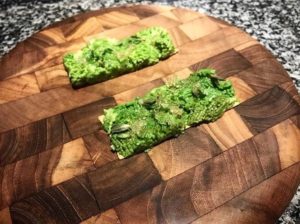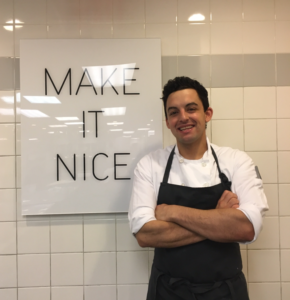
What made you want to Stage at Attica in Melbourne?
I selected Attica because the restaurant was just about as far away from home as I could get. It allowed me to see life in a kitchen in a completely different light. This grant allowed me to experience cuisine through the eyes of a child - I realized that I was completely oblivious to the endless ecosystems, food, and cultures outside of the United States, and I am grateful for my stage as a result.
Can you describe what you did during your Stage?
On the first day, all of the cooks at Attica joined together as a unit to form tarts and listen to music. There was a new roster, and Chef Ben Shewry began to explain his reasoning for the change. Each staff member at Attica was about to undergo a rather monumental shift in the way the kitchen would soon operate. Ben began speaking about the importance of personal health and wellbeing, as they are especially overlooking in the hospitality industry. This stood out to me and this is the first moment that I realized that staging would be different than anything else I had ever experienced.
While working at Attica, our days were structured and split into segments. We generally completed one group of tasks and then shifted gears. A typical 10am shift was broken down as follows:
10am: Arrive at work and begin prep for a given station.
12pm: Everyone joins together to listen to music and form tarts for one of the foundational dishes at Attica. Shortly after, the lead chef in the kitchen goes over dietary restrictions, special accommodations for the day, and any other notes as far as kitchen maintenance.
1pm: Majority of cooks will walk to the garden and pick herbs and flowers for service that day.
2-5pm: Finish prepping for station. Staff meal is prepared by a different cook each day. This will be put up at 3:30pm. Every Wednesday and Friday, a member of the staff is chosen to do a staff talk on a topic of their choice.
5-6pm: Prepare for service. Full kitchen scrub. Clean the garden behind the restaurant and prepare a fire for the guests.
6pm-close: Orders are called from one head chef in the kitchen.
What stands out as some of the lessons that you learned during your experience?
At Attica, Chef Ben leads an extremely creative kitchen. It is so common to think outside the box and challenge traditional ways of thinking while creating a playful and fun atmosphere for guests to experience all types of cultures and foods native to Australia. I was exposed to a large amount of ingredients partial to Australia and also uniquely related to the vision of the restaurant. Ingredients like kangaroo and wattle soy were so foreign to me. My favorite and seemingly least complicated dish was fried saltbush (retrieved from the beach nearly every day) served on top of macadamia puree; guests used the saltbush as "chips" to taste the puree. Even small things like vinegar powder or native currant powder used to season sweet potato frites helped me to see how much more exploration there is in the world of cooking.
The most profound take-away from my trip was the overall picture of what a working environment could be like in a kitchen. Many kitchens are so streamlined and stagnant, even if the food and ingredients change. Attica was so much more. We listened to some of the best music (on the best sound systems), reminisced about our three-day weekends and crushed services that were a culmination of so much more than just hard work.
As I reflect on the past two months that I spent at Attica, it is hard to express in words the amount my heart grew. I realized that one of the most valuable things in life is the ability to see things from a new perspective. More importantly, my stage reiterated that working in a kitchen comes down to collaboration, not competition; appreciation, not inspiration. There is no way to challenge convention without such reflections. The memories and insight that I obtained will forever be stuck in my brain. I plan to share all of the most fundamental lessons with all of my colleagues and friends going forward.
